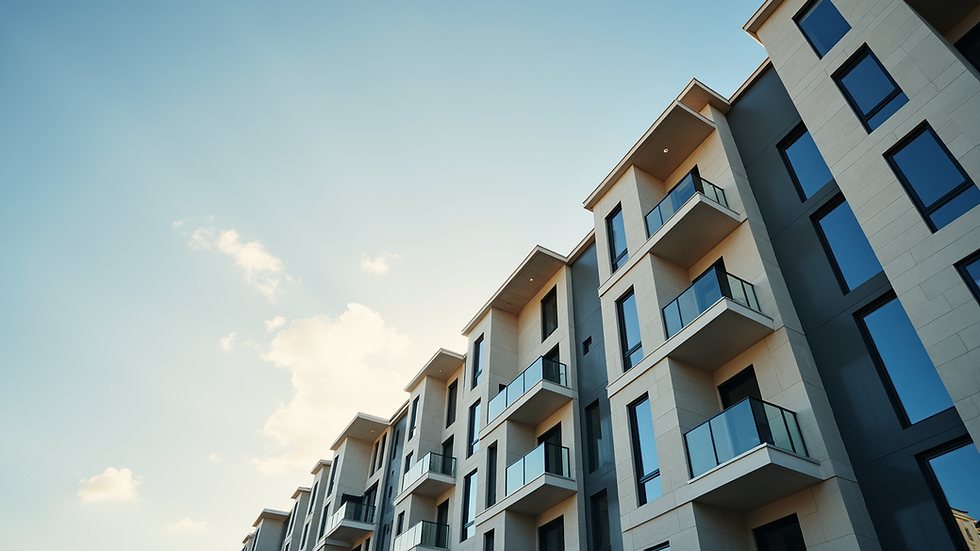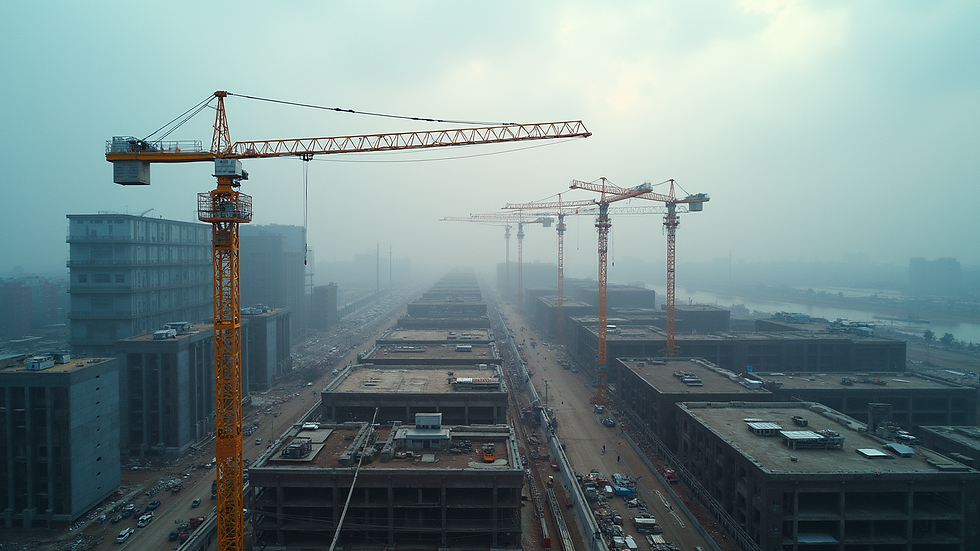Innovations Revolutionizing Real Estate Construction in India
- Nitesh Jain
- Aug 7, 2025
- 4 min read
The construction landscape in India is evolving rapidly. New technologies and methods are transforming how buildings are designed, constructed, and maintained. This shift is particularly visible in the residential sector, where innovation is driving efficiency, sustainability, and quality. As someone closely following these trends, I find it essential to explore the key innovations that are shaping the future of innovative residential construction in India.
Embracing Innovative Residential Construction Technologies
Innovative residential construction in India is no longer about traditional bricks and mortar alone. Modern techniques and materials are making homes safer, more durable, and environmentally friendly. For example, the use of prefabricated components is gaining traction. These components are manufactured off-site and assembled quickly on-site, reducing construction time and waste.
Another significant advancement is the integration of Building Information Modelling (BIM). BIM allows architects, engineers, and contractors to collaborate on a digital platform, improving accuracy and reducing errors during construction. This technology also helps in visualising the project before actual work begins, saving costs and time.
Moreover, green building materials such as fly ash bricks, recycled steel, and low-VOC paints are becoming popular. These materials reduce the environmental impact and improve indoor air quality. Solar panels and rainwater harvesting systems are also being incorporated into residential projects to promote sustainability.

What’s the Difference Between Construction and Real Estate?
Understanding the distinction between construction and real estate is crucial for anyone involved in property development or investment. Construction refers to the actual process of building structures, including planning, designing, and executing the physical work. It involves contractors, engineers, architects, and labourers who bring a project from concept to reality.
Real estate, on the other hand, encompasses the broader business of buying, selling, and managing land and buildings. It includes residential, commercial, and industrial properties. Real estate development often involves multiple construction projects but also includes financing, marketing, and legal aspects.
In India, the synergy between construction and real estate is vital. Developers rely on innovative construction methods to deliver quality projects that meet market demands. For instance, companies like Aadinath Infracon Pvt Ltd are leveraging advanced construction technologies to enhance their real estate construction offerings in the Delhi/NCR region.

Smart Homes and Automation in Residential Construction
Smart home technology is no longer a luxury but a growing expectation in residential construction. Homeowners want convenience, security, and energy efficiency, all of which smart systems can provide. Innovations such as automated lighting, climate control, and security cameras are becoming standard features in new homes.
In India, the adoption of Internet of Things (IoT) devices in residential buildings is increasing. These devices connect various home systems to a central hub, allowing remote control via smartphones or voice commands. For example, smart thermostats adjust temperature based on occupancy patterns, reducing energy consumption.
Additionally, smart water management systems help conserve water by monitoring usage and detecting leaks early. These technologies not only improve the quality of living but also contribute to sustainable resource management.

Sustainable Practices and Energy Efficiency
Sustainability is a key driver in the evolution of residential construction in India. With growing environmental concerns and rising energy costs, builders are adopting practices that reduce carbon footprints and promote energy efficiency.
One effective approach is the use of passive design principles. This includes orienting buildings to maximise natural light and ventilation, using thermal insulation, and incorporating shading devices. These design choices reduce the need for artificial lighting and air conditioning.
Solar energy is another critical component. Installing solar panels on rooftops can significantly cut electricity bills and reduce dependence on the grid. Many residential projects now include solar water heaters and energy-efficient appliances as standard.
Water conservation is also addressed through rainwater harvesting and greywater recycling systems. These measures help manage water resources sustainably, especially in water-scarce regions.
The Role of Technology in Project Management and Quality Control
Technology is not limited to construction techniques but extends to project management and quality assurance. Digital tools enable better scheduling, resource allocation, and communication among stakeholders.
For example, drones are increasingly used for site surveys and progress monitoring. They provide real-time aerial views, helping managers identify issues early and make informed decisions. Similarly, 3D printing is emerging as a method to create building components with precision and speed.
Quality control benefits from advanced sensors and monitoring systems embedded in structures. These systems track parameters like structural integrity, temperature, and humidity, ensuring that buildings meet safety standards throughout their lifecycle.
Moving Forward with Confidence
The innovations transforming innovative residential construction in India are setting new benchmarks for quality, efficiency, and sustainability. By adopting these technologies and practices, builders can deliver homes that meet modern expectations while addressing environmental challenges.
For those involved in property development or investment, understanding these trends is essential. Companies like Aadinath Infracon Pvt Ltd exemplify how embracing innovation can lead to successful projects that satisfy clients and contribute positively to the urban landscape.
As the industry continues to evolve, staying informed and adaptable will be key to making the most of these advancements. The future of residential construction in India looks promising, driven by technology, sustainability, and a commitment to excellence.






A trusted Pakistan buyer seller platform is essential for smooth transactions. When users know they’re dealing locally, confidence increases. Clear listings and direct communication help both buyers and sellers complete deals efficiently and safely.